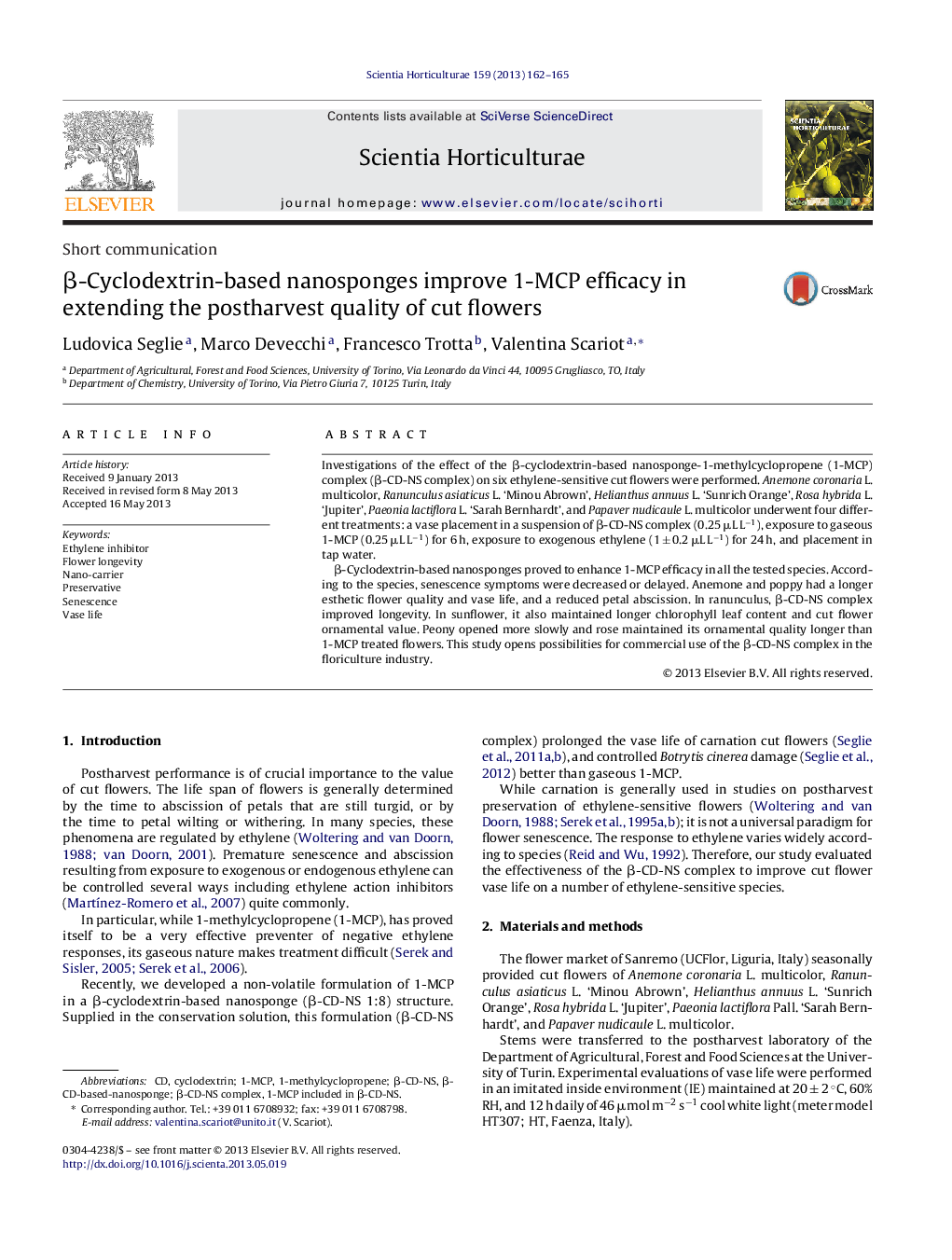| Article ID | Journal | Published Year | Pages | File Type |
|---|---|---|---|---|
| 4567235 | Scientia Horticulturae | 2013 | 4 Pages |
•A non-volatile formulation of 1-MCP (β-CD-NS complex) is proposed.•We investigated the effect of the β-CD-NS complex on 6 ethylene-sensitive species.•The β-CD-NS complex improved cut flower vase life.•The β-CD-NS complex outperformed the gaseous 1-MCP.
Investigations of the effect of the β-cyclodextrin-based nanosponge-1-methylcyclopropene (1-MCP) complex (β-CD-NS complex) on six ethylene-sensitive cut flowers were performed. Anemone coronaria L. multicolor, Ranunculus asiaticus L. ‘Minou Abrown’, Helianthus annuus L. ‘Sunrich Orange’, Rosa hybrida L. ‘Jupiter’, Paeonia lactiflora L. ‘Sarah Bernhardt’, and Papaver nudicaule L. multicolor underwent four different treatments: a vase placement in a suspension of β-CD-NS complex (0.25 μL L−1), exposure to gaseous 1-MCP (0.25 μL L−1) for 6 h, exposure to exogenous ethylene (1 ± 0.2 μL L−1) for 24 h, and placement in tap water.β-Cyclodextrin-based nanosponges proved to enhance 1-MCP efficacy in all the tested species. According to the species, senescence symptoms were decreased or delayed. Anemone and poppy had a longer esthetic flower quality and vase life, and a reduced petal abscission. In ranunculus, β-CD-NS complex improved longevity. In sunflower, it also maintained longer chlorophyll leaf content and cut flower ornamental value. Peony opened more slowly and rose maintained its ornamental quality longer than 1-MCP treated flowers. This study opens possibilities for commercial use of the β-CD-NS complex in the floriculture industry.
